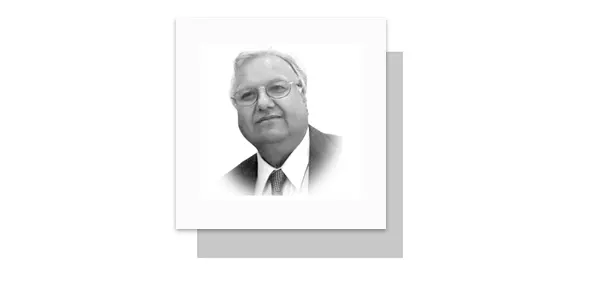CASE involving £190 million is only the visible tip of a much larger and more alarming narrative. While the details of this specific case are widely known and even acknowledged by some of Khan’s defenders with ifs and buts, underlying issue extends far beyond. It lies within a mindset that has increasingly corrupted the system, polluting it to an unbearable extent.
This issue revolves around the mentality and approach that shaped Imran Ahmed Khan Niazi. In his autobiography, Khan shared several revelations, including one about a financial crisis faced by his political party. With mounting debts and limited resources, his advisors were troubled, but Khan devised an unusual solution. During a cricket tournament in London, where gambling was rampant, Khan’s then-brother-in-law Zac Goldsmith sought betting advice. Khan agreed to provide guidance on the condition that he would receive half the winnings. Goldsmith accepted, won thousands of pounds based on Khan’s advice, and shared the proceeds. Thus, funds derived from gambling became a financial lifeline for Pakistan Tehreek-e-Insaf (PTI).
Another controversial narrative involves the “sewing machine” earnings allegedly used to acquire properties in Western countries. During Khan’s tenure, questions arose about how such modest earnings could fund such significant acquisitions. The answers were never forthcoming. Instead, stories emerged of funds raised in the name of disaster-stricken victims through televised campaigns that never reached their intended beneficiaries. Tracing these funds to the mysterious “sewing machine” revenue might reveal startling truths.
Justice Wajihuddin Ahmed offers another lens into Khan’s commitment to transparency. A respected figure in law and politics, Ahmed joined PTI, inspired by its promises of accountability. As PTI’s Chief Election Commissioner, he uncovered and documented corruption during the party’s internal elections. Wealthy individuals openly bought influence, undermining the party’s integrity. Instead of valuing Ahmed’s findings, Khan expelled him and promoted those implicated in corruption. This episode reflects a recurring pattern within PTI—prioritizing political gains over principles of fairness and legality.
Khan’s government became synonymous with corruption scandals across sectors, including fuel, gas, and healthcare. The COVID-19 pandemic further exposed the administration’s flaws, with allegations of black-market profiteering in essential medical supplies. Even ministers faced corruption charges, though those removed from cabinet were later rewarded with party positions. These actions raised questions about Khan’s commitment to transparency.
PTI’s financial dealings, particularly the foreign funding and prohibited funding case, further underscore these concerns. Documented evidence suggests funding from India and Israel, raising serious questions about national loyalty. PTI’s attempts to delay proceedings rather than address allegations only deepened suspicions. Accepting foreign funding is unacceptable, but receiving funds from hostile nations like India and Israel is particularly alarming. PTI has yet to provide satisfactory answers, further compounded by questions surrounding donations for Shaukat Khanum Hospital.
Beyond financial matters, PTI’s approach to legislative and constitutional issues has also drawn criticism. During the no-confidence motion, this party demonstrated blatant disregard for constitutional norms. This behaviour highlights PTI’s willingness to prioritize political ambitions over legal principles. Similarly, Khan’s participation in by-election campaigns, despite regulations prohibiting state officials from doing so, reflects his disregard for the rule of law.
The £190 million case epitomizes this pattern of behaviour. It highlights not only financial corruption but also conflict of interest and abuse of power. Khan and his aide, Shahzad Akbar, secured federal cabinet approval for this matter by presenting a sealed envelope—a move unprecedented in its audacity. This incident exemplifies the misuse of authority during Khan’s tenure.
These incidents collectively reveal a troubling picture of PTI and Imran Khan’s approach to governance. Key conclusions include: (i) Distinction between lawful and unlawful holds no significance for Khan and PTI. (ii) He unapologetically employ any means, ethical or unethical, to achieve his goals. (iii) The constitution and laws are disregarded whenever they conflict with personal or political ambitions. (iv) PTI provides ample space for corrupt individuals to thrive within its ranks. (v) National interest and loyalty are secondary to the party’s objectives, even if it means seeking support from hostile nations.
Imran Khan’s slogans of accountability and transparency appear to have been tools to discredit opponents rather than genuine principles. He positioned himself above morality and legality, pursuing ambitions unchecked by ethical considerations. However, divine justice often serves as the ultimate equalizer. The verdict in the £190 million case may remind Khan—and others—that those who dig pits for others often find themselves ensnared within.
—This writer is former advisor to the president of Pakistan, author & mass media theorist.
(farooq.adilbhuta@gmail,com)







